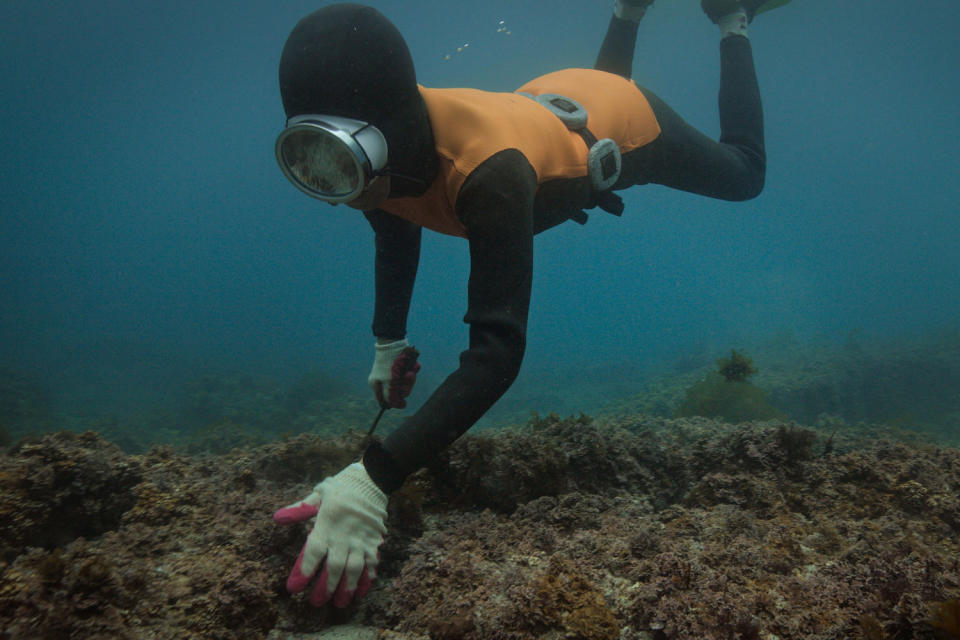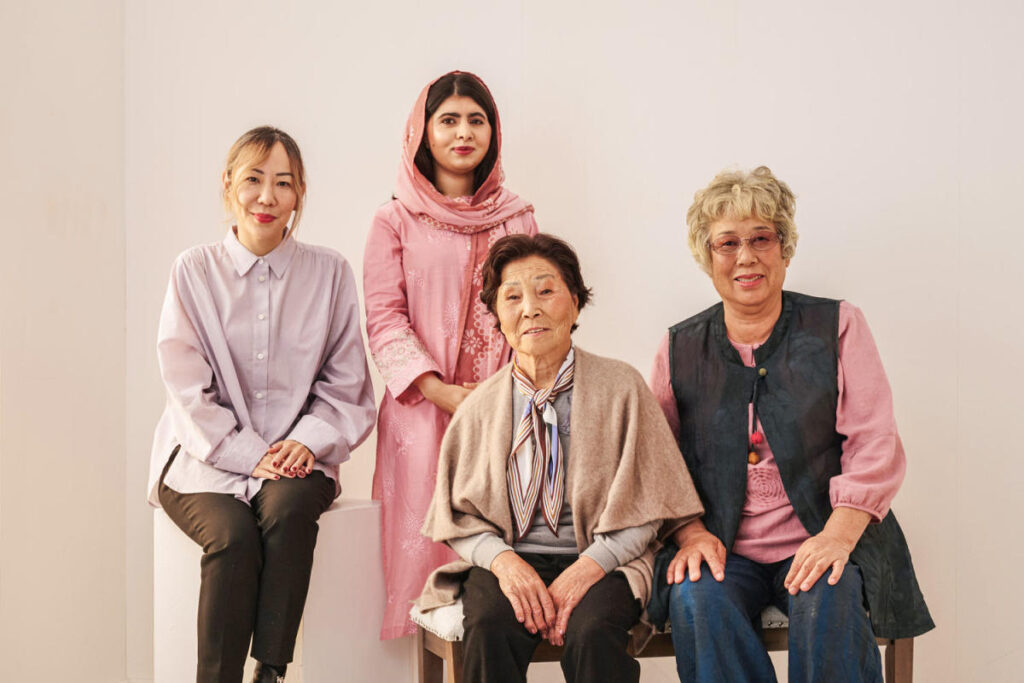South Korea’s “haenyeo,” or women divers, say that they’ve become inseparable from their deep blue environment.
In Nobel Peace Prize winner Malala Yousafzai’s first executive-produced film, she explores the divers’ world, most of them now in their 60s, 70s and 80s and living on Jeju Island, 80 miles off the Korean Peninsula.
The women are preserving a centuries-old tradition, which includes maintaining a sort of sisterhood, and are also vocal against issues like climate change and nuclear waste.
The documentary “The Last of the Sea Women,” out Friday on Apple TV+, explores the lives of a group of these “real-life mermaids,” as the haenyeo are known, as they strive to protect their livelihood and ancestral craft from a range of external forces.
The divers harvest abalone, sea urchins and more by venturing into dark waters without the aid of oxygen tanks or professional diving equipment, instead using instruments like nets and hoes. In the 1960s, the haenyeo numbered in the 30,000s. Despite being included in the UNESCO Intangible Cultural Heritage list, today they hover around 3,200 today.
The women argue and bicker almost as much as they crack jokes together. But Yousafzai says it’s their very human, unconditional support for one another that is central to their survival.
“In my own story of activism, I am sometimes seen as one girl taking the fight, but I know that’s not a true reflection of what really brings real change,” Yousafzai said. “When I look at the story of the haenyeo, I see that very clearly — how they are able to actually maintain and sustain their community by that togetherness and that friendship and sisterhood.”
While many of the women joined the dangerous diving industry out of necessity — to support their families after tragedy or through financial insecurity — the haenyeo also speak out against a range of issues, like pollution from tourists, warming waters due to climate change, dwindling interest in their craft and the release of nuclear waste from the Fukushima plant into their area.
The women say they resist these threats by protesting at rallies or honoring their art through cultural traditions. One haenyeo, Jang Soon Duk, even travels regularly to Switzerland to speak in front of the U.N. Human Rights Council, pleading for the protection of their waters amid the looming release of nuclear waste. In the time since, Japan has begun the process to contain the waste, which is estimated to take nearly three decades.

“The ocean is our home. We have to go to the sea,” Geum Ok, a haenyeo, says in the film. “Even in my next life, I will dive again.”
Throughout the film, scenes are peppered with laughter and jokes on anything from scheduling to more existential issues. Director Sue Kim said she also wanted to show them being their authentic selves, which includes a healthy dose of “love language.”
“It’s fighting. The fighting that happened amongst the haenyos was constant,” Kim said, laughing. “All that means is that that’s how close they are. … They talk about it, they yell about it, but as you also saw in the film, they instantly resolve it. They know how to forgive each other.”
Kim added that the women don’t hold onto resentment, simply because they can’t afford to have the emotions divide them.
“Their survival depends on their dependence and their interdependence with each other,” she said.
Jang and Lee Hee Soon, another haenyeo in the documentary, explained that their strength comes, in part, from the role the women play in their families.
“I believe we can do this because women are moms,” Jang said in Korean, through a translator. “We are moms and moms are strong.”
Jang also mentioned that she, like many other haenyeo, felt it critical to “be the one managing the family and also keeping the family safe.” With families leaning on them, it “just became our culture” to push forward regardless of circumstance.
Yousafzai mentioned that the haenyeos’ story reflects a long history of women attempting to “set their own definitions of what liberty and dignity means to them.”
“Women just have no choice. They don’t even get any time to actually reflect on how they want to define that life for themselves. It’s just constantly this battle for living in a more equal, safer world,” Yousafzai said.
This article was originally published on NBCNews.com
Read the full article here
